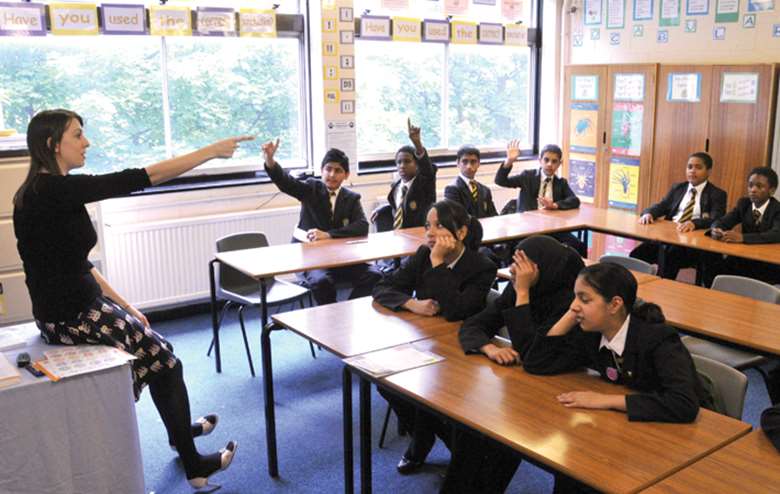DfE urged to take action on 'hidden children' missing education
Gabriella Jozwiak
Monday, March 27, 2017
The Department for Education must update statutory guidance for local authorities as part of attempts to prevent thousands of children missing education, a children's charity has suggested.

Research conducted by the National Children's Bureau (NCB) found examples of children who were registered at a school, but had not attended for months or years as a result of being illegally excluded.
Other examples included children who were missing school as a result of having special educational needs, because they were a victim of domestic violence, or because their parents have moved to England from abroad and do not understand school admissions processes.
The study also found local authorities had different ways of recording information on children missing education, different ways of allocating resources, and different approaches to delivering their statutory and non-statutory duties, which was contributing to the problem.
The findings, based interviews with children missing education officers and leads, other local authority professionals and 17 families from three local authority areas, prompted the NCB to make several recommendations.
It wants the legal definition of children missing education within the Education Act 1996 to be expanded.
The report also urges the DfE to update statutory guidance for local authorities to include a duty to maintain a register of children who are not on a school roll, and duties that set standard approaches for recording and sharing information on children missing education.
It also wants Ofsted to inspect school and local authority performance in relation to children missing education.
No national data is available on the number of children missing education, but the NCB believes the number exceeds 33,000, based on freedom of information data collected in 2016.
NCB chief executive Anna Feuchtwang said it is "unacceptable that tens of thousands of children in England can't access their fundamental right to an education".
"Away from the safety and security of school they're more at risk of abuse and exploitation, taking part in criminal activity, and missing out on support for special educational needs and mental health problems," she said.
"Education is the key to a child's future. National government must lead the way so that all children get the right support.
Debbie Barnes, chair of the Association of Directors of Children's Services' educational achievement policy committee, said every child deserves a good standard of education, to be safe and to be adequately prepared for further education, training or employment, but this is not the case for many children who go missing from education.
"The report rightly recognises that children go missing from education for many different reasons, but this can be the first sign of vulnerability to all forms of abuse and neglect, including sexual exploitation or radicalisation," she added.
"Current legislation does not enable local authorities to safeguard vulnerable learners or to ensure that they receive a suitable education, for example, we do not always know when children have fallen off the radar as there is no requirement on some schools, including 'illegal' schools, or on parents or carers of children being electively home educated to provide any information or evidence of the quality of their pupils' educational experiences or of their health and wellbeing.
"This is an area of pressing concern for all directors of children's services as it reduces our ability to ensure that learners are safe and receiving a well-rounded curriculum that enables them to thrive.
Barnes said the ADCS welcomes the recommendations aimed at improving information sharing between local authorities and schools and extending the definition of children missing education, alongside the remit of statutory guidance, to bridge any gaps that currently exist.
"We would support a duty on schools, including academies, free schools and independent schools, to inform local authorities of all children on a part-time timetable and those in alternative provision and would argue that this should be further extended to include all children not in mainstream education," she said.
"This will help to ensure that no child missing from education goes without the timely and appropriate support that they both need and deserve and that they and their educational outcomes are safeguarded. Without this, some children and young people will continue to be hidden from view and their welfare placed at risk."
A DfE spokeswoman said: "Every child should have access to the best possible education, regardless of background or circumstance.
"We have strengthened the law around what information schools must share with their local authority when a pupil is taken off the roll. This should better enable local authorities to ensure promptly that children are safe from harm and receiving a suitable education.
"The duty lies with local authorities to make arrangements to establish the identities of children of compulsory school age in their area who are not registered pupils at a school and are not receiving suitable education otherwise."




